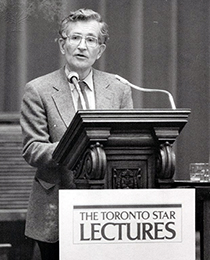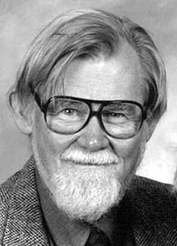3 Language and learning as cognitive or social processes
The well-known US theoretical linguist Noam Chomsky is one linguist who has been more concerned with the cognitive than the social processes of language and learning. He has argued throughout his career that human beings are born with the ability to learn language and that this ability, or mental grammar, is present without having been taught (Chomsky, 1965). Where the cognitive approach is disinterested in social aspects of language learning and language use, some interactional approaches are equally disinterested in cognitive aspects of language learning and use. The sociocultural linguistic approach sits somewhere in between, foregrounding the social but also recognising the relationship between the social and the cognitive. The sociocultural linguistic approach to language and learning is often associated with the Russian psychologist Lev Vygotsky, whose work we will discuss in a later section. Vygotsky was among a group of psychologists and philosophers of language who emphasised the social aspects of learning.

A scholar who reacted directly against Chomsky was Dell Hymes, a US ethnographer and linguist. Hymes criticised Chomsky’s notion of an innate linguistic competence. He saw this purely cognitive conceptualisation of linguistic competence as inadequate and coined an alternative term, communicative competence, to highlight that using language successfully is not only about knowing the rules of syntax, morphology and phonology. A language user must also know how to use and when to use utterances appropriately, thereby acknowledging the sociocultural and communicative aspects of language (Hymes, 1966). Unlike Vygotsky, Hymes is more often described as a linguistic ethnographer than as a socioculturalist, but the underpinning idea, that language is learned through social interaction with others, is fundamentally the same.
What distinguishes the sociocultural linguistic approach from other approaches to language and language learning, then, is what we look at and how we look at it. In terms of the former, we prioritise social interaction and function over cognition and form. In terms of the latter, we favour methodologies that enable us to observe how language and learning occurs in social interaction and in context. One such methodology is ethnography, informed by anthropology, which provides insights about how social, historical and cultural contexts shape language and learning. Ethnography is one of the key methodologies used in the sociocultural linguistic approach.


